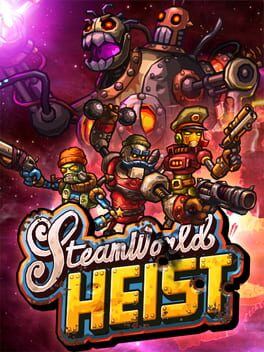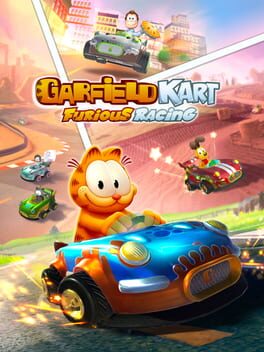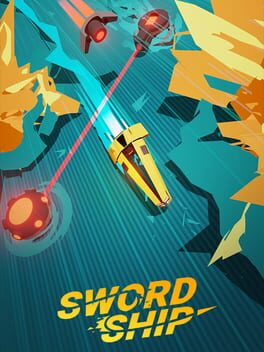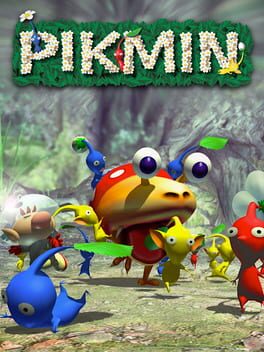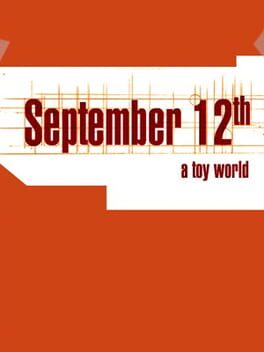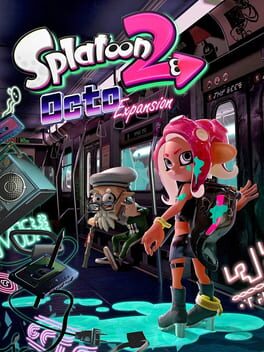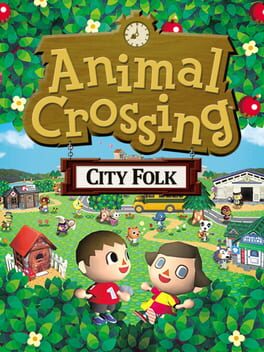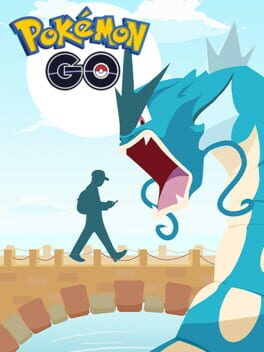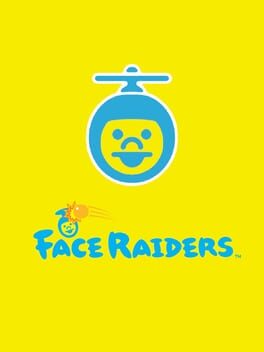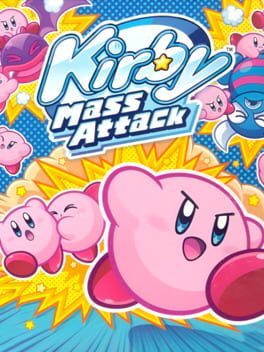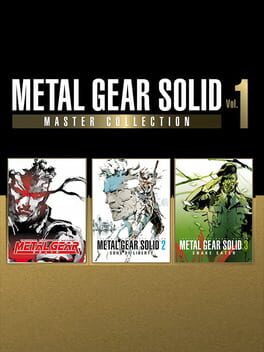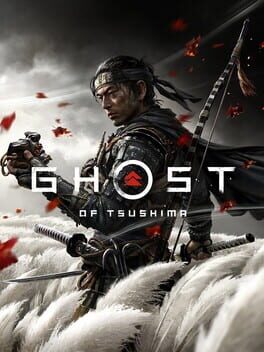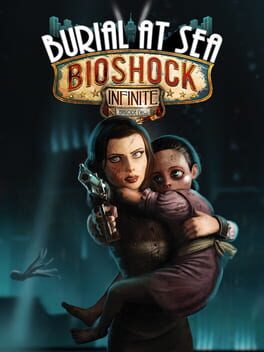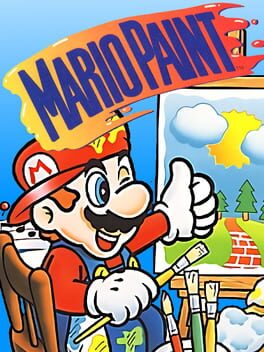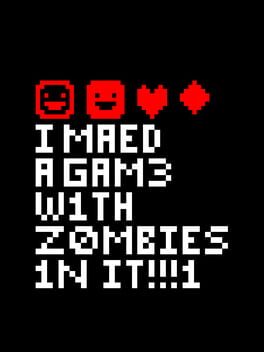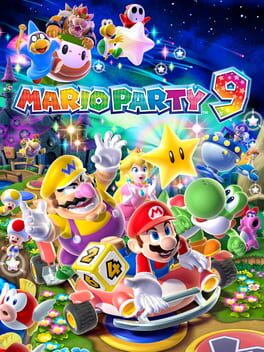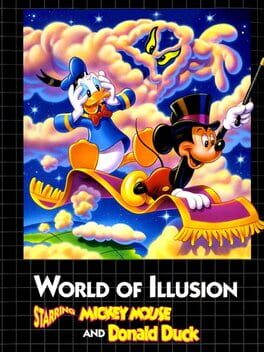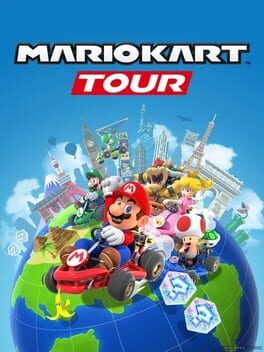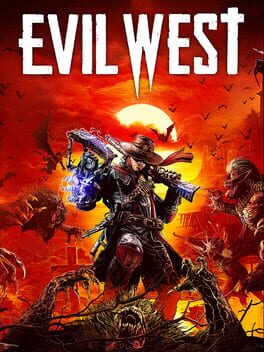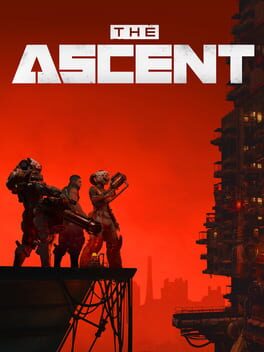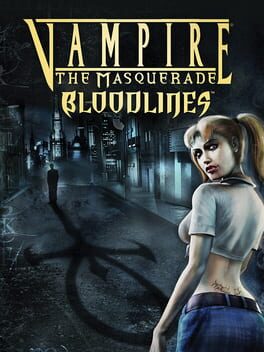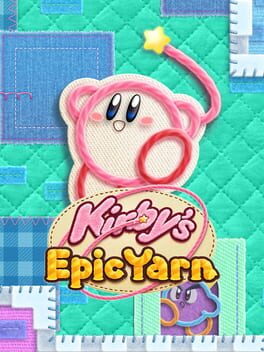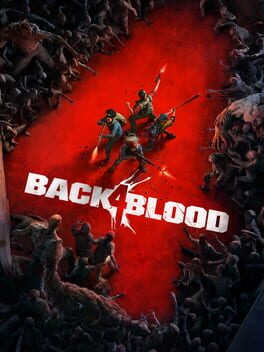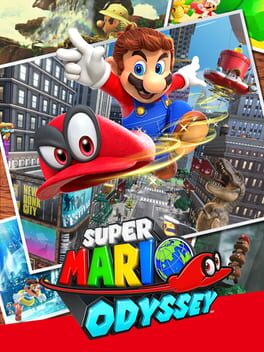It was fun to experience the first entry in the beloved Pikmin series! It's easy to tell that the first game was experimental, as many ideas weren't completely fleshed out yet and mechanics could be pretty janky. Others have talked about these points ad nauseam, so I'm going to focus more on the experience.
I really enjoyed the atmosphere. Compared to the later games, Pikmin 1 has an incredible sense of loneliness. You're trapped on an alien planet with a limited time to escape before you asphyxiate, and you're forced to place your trust in a hive mind species to survive. It's a great hook for a minimal story! Most of the dialog is revealed through daily logs and ship parts, which adds to the mystery surrounding Pikmin 1. Who is Olimar, why is he here, why do the pikmin help him etc etc.
When you finally get all the ship parts to return home, Olimar seems almost sad that he has to leave the pikmin behind. Again, no dialog (which is a good thing!) These moments made Olimar feel more human. This might be the last time he would ever see the species that would save his life! Of course, we know that's not true, but the subtle storytelling is very well done here.
Like many others, I was frustrated by tripping, dumb pikmin ai, and selecting specific pikmin, but Pikmin 1 started the series on a strong note. It was more difficult than I thought, which makes me excited to finally play Pikmin 2 and finish the series!
I really enjoyed the atmosphere. Compared to the later games, Pikmin 1 has an incredible sense of loneliness. You're trapped on an alien planet with a limited time to escape before you asphyxiate, and you're forced to place your trust in a hive mind species to survive. It's a great hook for a minimal story! Most of the dialog is revealed through daily logs and ship parts, which adds to the mystery surrounding Pikmin 1. Who is Olimar, why is he here, why do the pikmin help him etc etc.
When you finally get all the ship parts to return home, Olimar seems almost sad that he has to leave the pikmin behind. Again, no dialog (which is a good thing!) These moments made Olimar feel more human. This might be the last time he would ever see the species that would save his life! Of course, we know that's not true, but the subtle storytelling is very well done here.
Like many others, I was frustrated by tripping, dumb pikmin ai, and selecting specific pikmin, but Pikmin 1 started the series on a strong note. It was more difficult than I thought, which makes me excited to finally play Pikmin 2 and finish the series!
Posted this as a big thread on twitter earlier so just dropping it here too for posterity: I'm coining a new genre term.
No spoilers for any game I mention, outside of maybe minor mechanical ones.
I posit the argument that the Fez-like is its own genre, a genre which currently has 5 (+2) games that fit its template. These are Fez itself, La Mulana and its sequel, Tunic and Animal Well. The +2 are Outer Wilds and Inscryption, games that shares much of its design philosophy with the genre but with a key difference which we will get into shortly.
I have decided this genre should be called the Onionlike. Each of these games present themselves on the surface as some other genre - Fez is a platformer, Tunic is a Souls-like, Animal Well is a metroidvania - but after you begin to explore the game, this peels back to reveal further layers, primarily based around in-universe puzzles, like an onion! Outer Wilds and Inscryption are adjacent to this for different reasons:
Outer Wilds - this game is nakedly about exploration and the
entire thing is about it and there is not really any hidden layers. However it is worth a mention as being very similar to the second layer of Onionlikes.
Inscryption - Inscryption is actually still primarily a roguelike deckbuilder from top to bottom, with a few mega Easter eggs
For the eagle-eyed player. While some parts of the game ask you to do some puzzle solving (and there is a grand arg at the end of it) it is still ultimately a (very very good!) card game.
Ok with that out of the way let's talk about the originator of the Onionlikes, Fez.
Fez is a 2012 game by Polytron, a defunct game dev team (now small publisher) consisting of the infamous Phil Fish and Renaud Bédard, with Bédard writing Fez's engine and Fish doing nearly everything else except the soundtrack and SFX. On the surface, Fez is an esoteric platformer, primarily taking place in the 2D plane, but with the extra mechanic of being able to "spin" that plane. Each room in the game is actually a 3D area which can only be viewed from one side at a time. This is used to create light platforming puzzles.
As Gomez, the lil guy with the titular fez, you accidentally break a giant gold cube and have to go and find the pieces to restore it. As you do, you venture through many different environments, peppered with mysterious symbols, art and architecture that hint at a grander narrative. This story will never be told to you directly (and afaik has no actual canon interpretation). At some point, you will probably solve a puzzle that is not the primary puzzle of a room and will receive a purple cube instead of a gold one. This is an anti-cube.
This is where Fez reveals itself. The sprawling map of the world contains an equal number of cubes and anti-cubes, with the regular cubes being primarily found through platforming or easy surface level puzzles. You can finish Fez with just these cubes and get an ending.
This is the first layer of Fez. But when you get that first anti-cube, it will likely pique your interest. Maybe you start making note of the symbols in the world in a notebook. Maybe you start trying to decode what they mean. As you progress, getting more anticubes, you obtain more knowledge, decoding puzzles and symbols and language to unlock all the anticubes. This gives you a second ending.
But there is still more to find, still rooms of the map that puzzle. There is a third layer to Fez, one that - if this game takes you - you could spend manyhours puzzling over. One that, at the time, required community cooperation to solve, that took months of work. This is the soul of the Onionlike, a game that primarily takes place in the players head, a game that roots itself so deeply that I can still remember how to solve Fez's
puzzles over a decade later.
The design philosophy behind this is actually rooted in Myst. Myst is a 1993 puzzle game that stripped out a lot of the tropes of point and click games to make a game that primarily took place in the player's head. (Hbomb has a fantastic video on this
On his patreon that I would highly recommend watching). Myst was itself a direct influence on Fez and the basic design of the puzzles is very similar, asking the player to decode and understand a world that is totally alien to them.
However, I think it is fair to say Myst is quite imposing to a modern player. It presents nothing (not even a UI!) that could be recognised as "a video game" and in an era where games lean further and further into being frictionless, I think this makes Myst a pretty tough sell,
even though there's actually something magical to be experienced there. This is part of the magic of Onionlikes - by presenting a veneer of recognisable video game (whether it be the cube collecting of Fez or the "defeat these bosses" metroid pillars of Animal Well) to draw the player in actually works in the favour of keeping the modern player on board. As the player progresses through the "normal" game, the outer skin as it were, they will inevitably stumble on to a secret, or a puzzle they don't quite understand, and more often than not it'll pique their interest.
The tricky part comes in getting that balance right, though, something I feel that Animal Well is the first of these games to really nail. One of the main criticisms of Fez is that it's platforming is too simple, and the 3D spin gimmick isn't used that effectively, which is definitely fair. As an attention grabber, it works briefly, but unless the player quickly gets invested, I'm not sure it has the stressing power to ensure they get to see the good stuff. Tunic has the opposite problem.
Presenting itself as a Souls-like means Tunic inherits a lot.of the mechanics of a Souls game, many of which I would argue do not aid it's design in the slightest. Resetting progress at bonfires, stamina-based combat, enemies that always hit hard -
It all works to tire the player long before they get to layer 2. Luckily, there are accessibility options to set stamina and health to infinite, which I would recommend once you feel the game is getting too much
(for me, this was in the mine where your max health can be reduced until you next respawn)
But Animal Well is enough of a metroidvania to make the first layer satisfying in its own right without being frustrating, and it sprinkles its secrets through commonly enough in the early game to ensure they are enticed.
What all 3 of these games have in common, though, is how the different layers ask you to engage with the game. The surface is of course as we have already described, and layer 2 is deeper and more cerebral, asking the player to
Engage properly with the world as built, to treat it as a reality and interact with it as if it were, learning and doing. But the third layer is where things get fruity.
The third layer is often metatextual. To make a game like this, you have to really love video games, I feel.
Sometimes this is felt early; in Fez as the giant cube explodes your console or pc reboots with a fake "American Star!" POST screen of the 90s themed after Polyton. Sometimes, it's part of the discovery - Tunic's main collectables are pages of a manual,
the manual of the game you're actually playing but in an ancient language, with just enough simple English for you to understand. Like you're a kid reading it in the back of the car on the way home from blockbuster.
I think this love is what makes games like this possible. Because to make an Onionlike, something out there must have captured the designer's brain in the same way that they are trying to do now. Maybe it was Myst, or The Legend of Zelda, or (as I am inclined to believe is the case for Animal Well) Fez itself. But something out there twisted the developer's brain in a knot, and passing on that feeling is something truly special.
I don't expect to see these games often. I would be deeply surprised if we see another Onionlike before 2030 - they are a uniquely difficult undertaking as a developer. But each one that is made is magical, and tells us so much about the effect games had on the person making it.
No spoilers for any game I mention, outside of maybe minor mechanical ones.
I posit the argument that the Fez-like is its own genre, a genre which currently has 5 (+2) games that fit its template. These are Fez itself, La Mulana and its sequel, Tunic and Animal Well. The +2 are Outer Wilds and Inscryption, games that shares much of its design philosophy with the genre but with a key difference which we will get into shortly.
I have decided this genre should be called the Onionlike. Each of these games present themselves on the surface as some other genre - Fez is a platformer, Tunic is a Souls-like, Animal Well is a metroidvania - but after you begin to explore the game, this peels back to reveal further layers, primarily based around in-universe puzzles, like an onion! Outer Wilds and Inscryption are adjacent to this for different reasons:
Outer Wilds - this game is nakedly about exploration and the
entire thing is about it and there is not really any hidden layers. However it is worth a mention as being very similar to the second layer of Onionlikes.
Inscryption - Inscryption is actually still primarily a roguelike deckbuilder from top to bottom, with a few mega Easter eggs
For the eagle-eyed player. While some parts of the game ask you to do some puzzle solving (and there is a grand arg at the end of it) it is still ultimately a (very very good!) card game.
Ok with that out of the way let's talk about the originator of the Onionlikes, Fez.
Fez is a 2012 game by Polytron, a defunct game dev team (now small publisher) consisting of the infamous Phil Fish and Renaud Bédard, with Bédard writing Fez's engine and Fish doing nearly everything else except the soundtrack and SFX. On the surface, Fez is an esoteric platformer, primarily taking place in the 2D plane, but with the extra mechanic of being able to "spin" that plane. Each room in the game is actually a 3D area which can only be viewed from one side at a time. This is used to create light platforming puzzles.
As Gomez, the lil guy with the titular fez, you accidentally break a giant gold cube and have to go and find the pieces to restore it. As you do, you venture through many different environments, peppered with mysterious symbols, art and architecture that hint at a grander narrative. This story will never be told to you directly (and afaik has no actual canon interpretation). At some point, you will probably solve a puzzle that is not the primary puzzle of a room and will receive a purple cube instead of a gold one. This is an anti-cube.
This is where Fez reveals itself. The sprawling map of the world contains an equal number of cubes and anti-cubes, with the regular cubes being primarily found through platforming or easy surface level puzzles. You can finish Fez with just these cubes and get an ending.
This is the first layer of Fez. But when you get that first anti-cube, it will likely pique your interest. Maybe you start making note of the symbols in the world in a notebook. Maybe you start trying to decode what they mean. As you progress, getting more anticubes, you obtain more knowledge, decoding puzzles and symbols and language to unlock all the anticubes. This gives you a second ending.
But there is still more to find, still rooms of the map that puzzle. There is a third layer to Fez, one that - if this game takes you - you could spend manyhours puzzling over. One that, at the time, required community cooperation to solve, that took months of work. This is the soul of the Onionlike, a game that primarily takes place in the players head, a game that roots itself so deeply that I can still remember how to solve Fez's
puzzles over a decade later.
The design philosophy behind this is actually rooted in Myst. Myst is a 1993 puzzle game that stripped out a lot of the tropes of point and click games to make a game that primarily took place in the player's head. (Hbomb has a fantastic video on this
On his patreon that I would highly recommend watching). Myst was itself a direct influence on Fez and the basic design of the puzzles is very similar, asking the player to decode and understand a world that is totally alien to them.
However, I think it is fair to say Myst is quite imposing to a modern player. It presents nothing (not even a UI!) that could be recognised as "a video game" and in an era where games lean further and further into being frictionless, I think this makes Myst a pretty tough sell,
even though there's actually something magical to be experienced there. This is part of the magic of Onionlikes - by presenting a veneer of recognisable video game (whether it be the cube collecting of Fez or the "defeat these bosses" metroid pillars of Animal Well) to draw the player in actually works in the favour of keeping the modern player on board. As the player progresses through the "normal" game, the outer skin as it were, they will inevitably stumble on to a secret, or a puzzle they don't quite understand, and more often than not it'll pique their interest.
The tricky part comes in getting that balance right, though, something I feel that Animal Well is the first of these games to really nail. One of the main criticisms of Fez is that it's platforming is too simple, and the 3D spin gimmick isn't used that effectively, which is definitely fair. As an attention grabber, it works briefly, but unless the player quickly gets invested, I'm not sure it has the stressing power to ensure they get to see the good stuff. Tunic has the opposite problem.
Presenting itself as a Souls-like means Tunic inherits a lot.of the mechanics of a Souls game, many of which I would argue do not aid it's design in the slightest. Resetting progress at bonfires, stamina-based combat, enemies that always hit hard -
It all works to tire the player long before they get to layer 2. Luckily, there are accessibility options to set stamina and health to infinite, which I would recommend once you feel the game is getting too much
(for me, this was in the mine where your max health can be reduced until you next respawn)
But Animal Well is enough of a metroidvania to make the first layer satisfying in its own right without being frustrating, and it sprinkles its secrets through commonly enough in the early game to ensure they are enticed.
What all 3 of these games have in common, though, is how the different layers ask you to engage with the game. The surface is of course as we have already described, and layer 2 is deeper and more cerebral, asking the player to
Engage properly with the world as built, to treat it as a reality and interact with it as if it were, learning and doing. But the third layer is where things get fruity.
The third layer is often metatextual. To make a game like this, you have to really love video games, I feel.
Sometimes this is felt early; in Fez as the giant cube explodes your console or pc reboots with a fake "American Star!" POST screen of the 90s themed after Polyton. Sometimes, it's part of the discovery - Tunic's main collectables are pages of a manual,
the manual of the game you're actually playing but in an ancient language, with just enough simple English for you to understand. Like you're a kid reading it in the back of the car on the way home from blockbuster.
I think this love is what makes games like this possible. Because to make an Onionlike, something out there must have captured the designer's brain in the same way that they are trying to do now. Maybe it was Myst, or The Legend of Zelda, or (as I am inclined to believe is the case for Animal Well) Fez itself. But something out there twisted the developer's brain in a knot, and passing on that feeling is something truly special.
I don't expect to see these games often. I would be deeply surprised if we see another Onionlike before 2030 - they are a uniquely difficult undertaking as a developer. But each one that is made is magical, and tells us so much about the effect games had on the person making it.
Game looks and sounds quite nice, but compared to the level design in the original DKC1-2 and Returns, I didn't particularly care for how many levels from the third world onward force you to keep moving forward without any breaks by having the level fall out from under you.
I finished the game (not 100%) back in 2015 on the Wii U, but I probably did it a disservice by playing it in multiplayer, which might have exacerbated my issues with it; might be worth revisiting by myself at some point down the road.
I finished the game (not 100%) back in 2015 on the Wii U, but I probably did it a disservice by playing it in multiplayer, which might have exacerbated my issues with it; might be worth revisiting by myself at some point down the road.
complicado falar desse jogo porque eu sei como as pessoas simpatizam com ele, tanto o X quanto o VII nunca me apeteceram tanto, eu lembro de dropar o X na epoca, e finalmente rejoguei com a mente mais aberta pra ver o que eu acharia, a começar pelos bons pontos, o jogo é lindo, a trilha sonora é muito boa, o combate é bem legal, é meio estranho voce ver um Final Fantasy sem ATB depois de seis jogos da serie seguirem esse caminho, mas funciona bem, o sistema de "level up" é interessante no inicio mas depois ficava cansativo de ficar mexendo na build, basicamente eu zerei o jogo seguindo o caminho linear, então nada a dizer sobre as quests ou o mundo em si, mas o que me faz ter problemas com ele, são principalmente os personagens, acho que tirando talvez a Lulu, nenhum realmente eu me importei ali, eu queria realmente ter gostado mais dele no geral, mas depois de um tempo a historia acabou sendo um segundo plano que eu nao ligava mais, apesar disso eu acho o final interessante, mas talvez ele ter vindo depois do meu favorito da serie que é o IX me fez ter esses problemas com ele, mas infelizmente pra mim é 6,5 mesmo, é um jogo legal, mas que não me agradou tanto no fim das contas.
Got it on gamepass and honestly aint that bad,the gameplay is fun,level design could be a bit better,story is just meh,its okay but not to the point where ur REALLY into it,you have your standard bad guy,a guy who tells u where to go and what to doi,and the main character is just a mindless "im just a tough guy" type, the "Cut the chitchat nerd tell me who do i gotta kill" . All in all a good game.
there still hasnt been an rpg thats exploited the true potential of the genre quite like this one. god its good. bloodlines is basically 60 percent complete, the combat just plain sucks, it drags heavy in the last bits, its cheap, buggy, and a bit too edgy. and its still almost perfect. the sheer amount of character this game manages to squeeze out of its 4 levels is completely insane. the first tiny level, santa monica, has a thousand times more intrigue and texture than every single far cry game map crushed into an infinitely dense cube. the characters sing with maybe the best video game dialogue ever, at least when it comes to style points. you get interesting choice in the missions, and the dialogue/skill trees have a complex/simplistic beauty to them. exploring each map and interacting with the world troika made is really just delightful in ever sense of the word. this game is so "dance nights at your local goth/human torture club" its insane. vtm bloodlines swings for the fences and gets like, a triple at least. maybe gets one into the stands.
Slow pace, lackluster story, and completely forgettable characters. The card building works well, but I prefer when games are more simple like L4D. Seems like a ride-or-die based on solo or co-op. I just can't see myself playing this more when there are great zombie titles out there that are actually fun.
I'd check out a sequel, but only on gamepass.
I'd check out a sequel, but only on gamepass.
Mario Odyssey foi uma baita de uma experiência. Desde que esse jogo lançou em 2017 eu sempre quis jogá-lo, e a espera valeu a pena. Explorar cada cantinho dos mundos desse jogo é muito gostoso, e conseguir coletar aquela lua que vc tanto batalhou é muito recompensador. O Mario possui controles incríveis então é muito divertido só saindo por aí pulando e tentando chegar em lugares diferentes. Eu recomendo d+, é definitivamente uma obra prima!
